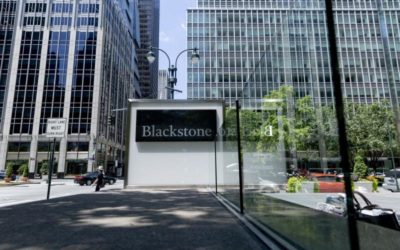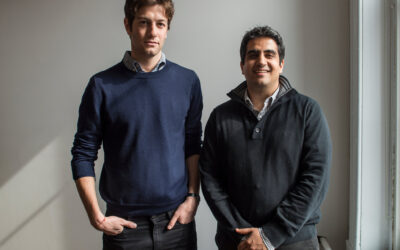A resurgence in mergers and acquisitions activity led to the busiest summer for blockbuster deals in three decades, as executives reshaped companies to cope with the fallout from the pandemic and private equity groups pounced on targets.
The combined value of $5bn-plus deals worldwide soared to $456bn in the three months to September, figures from Refinitiv show. That makes it the busiest third quarter on record, as bankers raced to make up for a dearth of activity at the height of the coronavirus crisis.
“The pace of the rebound in August and September somewhat surprised us,” said Dirk Albersmeier, global co-head of M&A at JPMorgan. “It’s been an amazing third quarter in terms of the rebound.”
Thirty-six deals worth $5bn or more were announced in the third quarter, the highest since records began 30 years ago, figures from Refinitiv show. The most prolific month for global dealmaking was September, when levels exceeded the same month a year earlier by 73 per cent, to reach $391bn.
“The M&A market was largely dormant almost all of the second quarter so there was a backlog when things reopened,” said Eric Schiele, a partner at the law firm Kirkland & Ellis. “I don’t think there is so much a new driver of a boom as much as the M&A market took a quarter off.”
“For high-quality companies . . . there’s an inordinate amount of interest,” added Alison Harding-Jones, head of M&A for Europe, the Middle East and Africa at Citigroup.
Meanwhile, companies hit hard by the pandemic are using deals to become “bigger, stronger, more diversified and better insulated”, she added.
The busiest summer on record for blockbuster deals helped drive an investment banking fee bonanza. In the third quarter, Wall Street banks booked a record $28bn in investment banking fees, bringing their year to date total to $89bn.
Boosted by a wave of stock market listings, corporate demand for financing during the crisis, and a boom in special-purpose acquisition companies, so far in 2020 the top five Wall Street lenders have each increased the investment banking fees they have booked by more than a fifth year on year.
“If you would’ve told me in mid-March that the business could perform this well during a pandemic, I would have never expected it,” said Gregg Lemkau, co-head of investment banking at Goldman Sachs. The sudden boom in Spacs has been a “positive upside surprise for Wall Street”, he added.
“The second quarter was the capital markets quarter and the third quarter has been the quarter for M&A,” said Patrick Ramsey, head of global M&A at Bank of America.
However, the resurgent dealmaking in the third quarter was not enough to compensate for low levels of activity in the first half of the year. In the nine months to September, activity fell to $2.2tn, its lowest year-to-date level since 2013, as companies focused on keeping their operations running rather than looking to strike deals.
Technology and pharmaceuticals were in demand
Technology deals had their best quarter in terms of value since records began three decades ago with $226bn worth of deals struck in the three months through September.
“Multinationals have figured out that, through the Covid crisis, there’s no time to wait when it comes to technology [and] now is the time to step up and transform your business,” said JPMorgan’s Mr Albersmeier.
Meanwhile, there were tie-ups in the pharmaceutical industry in the third quarter as major players sought to push further into treatments for rare conditions. Johnson & Johnson signed a $6.5bn all-cash deal for Momenta Pharmaceuticals and Sanofi agreed to buy Principia Biopharma for $3.4bn.
Sharp decline in cross-border deals
US dealmaking led the rebound, with M&A totalling $415bn in the third quarter, more than three times the volume in the second quarter of the year. “It was really the Americas that saw both the steepest decline in the second quarter and the sharpest recovery,” said BoA’s Mr Ramsey.
Cross-border dealmaking took a hit, however, as trade tensions ratcheted up and the pandemic brought out nationalist economic sentiment, and left dealmakers largely unable to travel.
Such deals fell to their lowest level in seven years despite a handful of large agreements, such as the Speedway deal and Adevinta’s $9.2bn purchase of eBay’s classifieds business, being pulled off.
Mr Schiele, who is based in the US, said restrictions around travel because of coronavirus have made it more difficult for cross-border deals to come together. “You can’t get on a plane and go anywhere, you can’t go meet a management team in Europe.”
Private equity puts ‘dry powder’ to work
Private equity groups, many of which had raised record-sized funds before the crisis, accounted for 15 per cent of all M&A activity in the first nine months of the year, the highest proportion since the boom in leveraged buyouts in the run-up to the financial crisis in 2007.
Among the most acquisitive private equity groups in the past three months were KKR and EQT. The largest deals included Blackstone acquiring a majority stake in Ancestry.com from US private group Silver Lake in a $4.7bn deal, and Clayton, Dubilier & Rice agreeing to pay $4.7bn for software group Epicor.
The industry struck more than 5,500 deals in the first nine months of the year, the most since records began in 1980, though its deals were worth 6 per cent less than last year, suggesting the groups have spent much of 2020 focusing on smaller deals and add-on acquisitions for portfolio companies even as large corporates have struck megadeals of $5bn and above.
“There’s a buy-and-build element and there’s also an element of people doing more growth equity deals, particularly in the tech space but also more broadly,” said Victoria Sigeti, a partner at law firm Freshfields. “People have wanted to carry that on through the pandemic as large deals have become more challenging.”
Source: Financial Times
Can’t stop reading? Read more
US Pipeline Operator ONEOK Inks Two Deals for $5.9 Billion
US pipeline operator ONEOK Inc. agreed to buy a Permian Basin rival and a controlling stake in...
Blackstone Is Said to Seek A$5.5 Billion Loan for AirTrunk Bid
Private equity firm Blackstone Inc. is in discussions with banks for a five-year loan of about...
Thrive Capital to lead multi-billion dollar OpenAI investment round at $100bn valuation
OpenAI, the company behind the popular AI tool ChatGPT, is in advanced talks to secure several...




